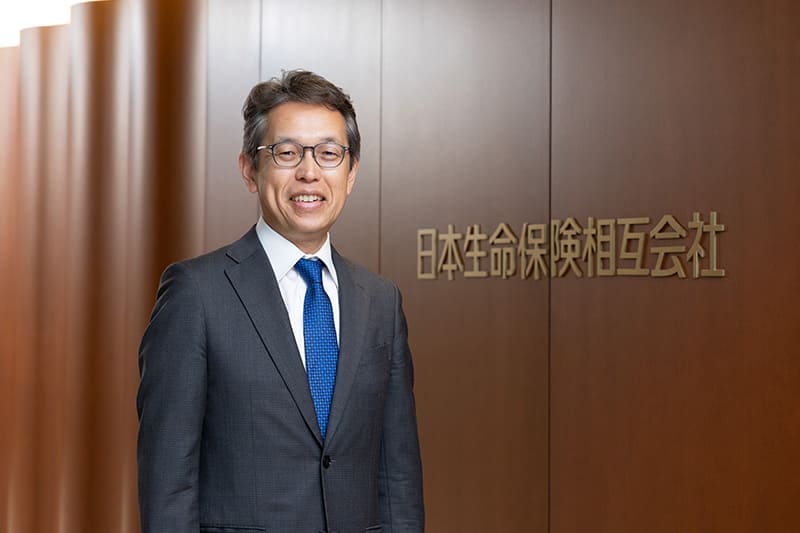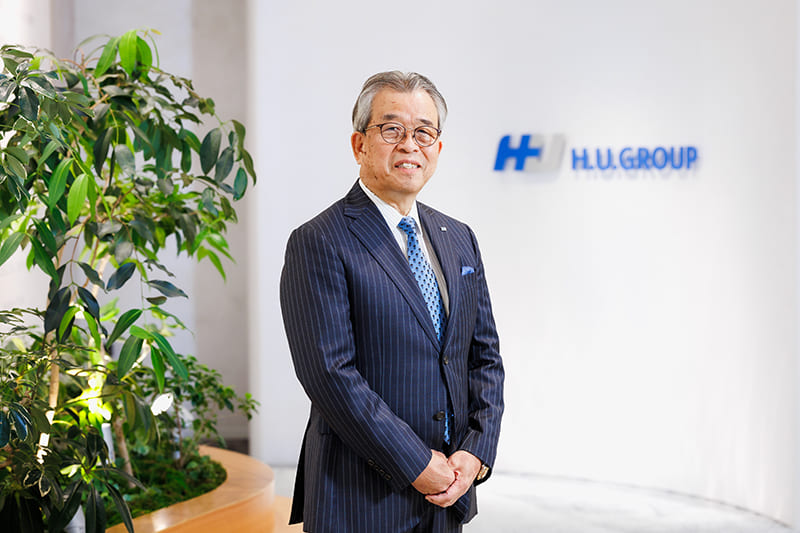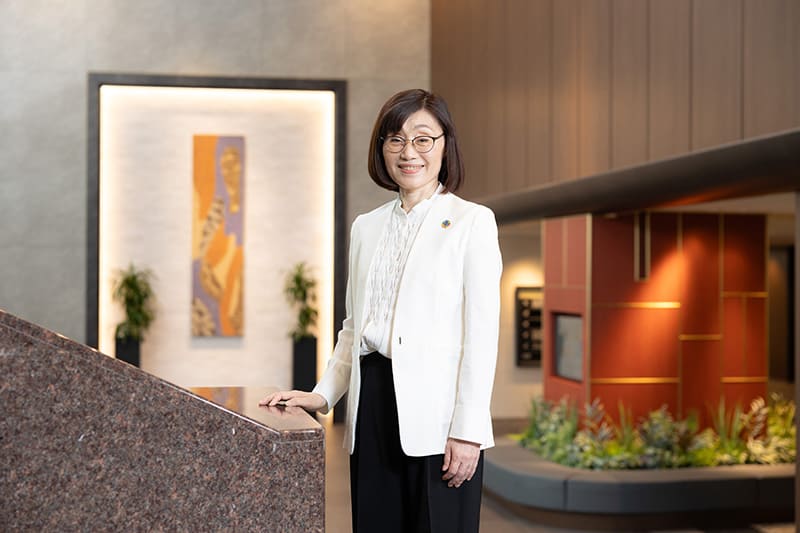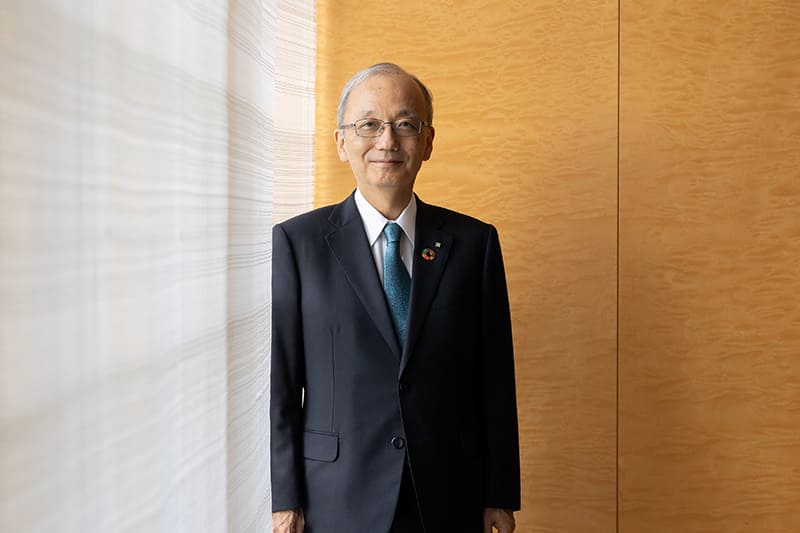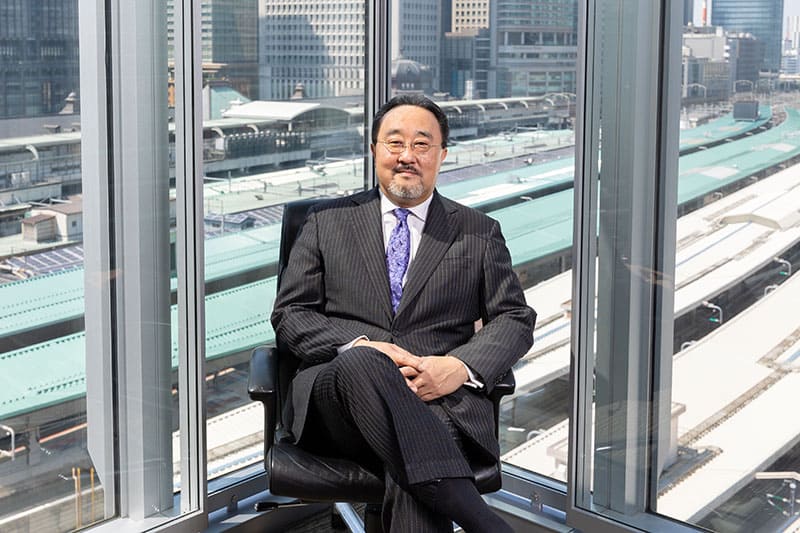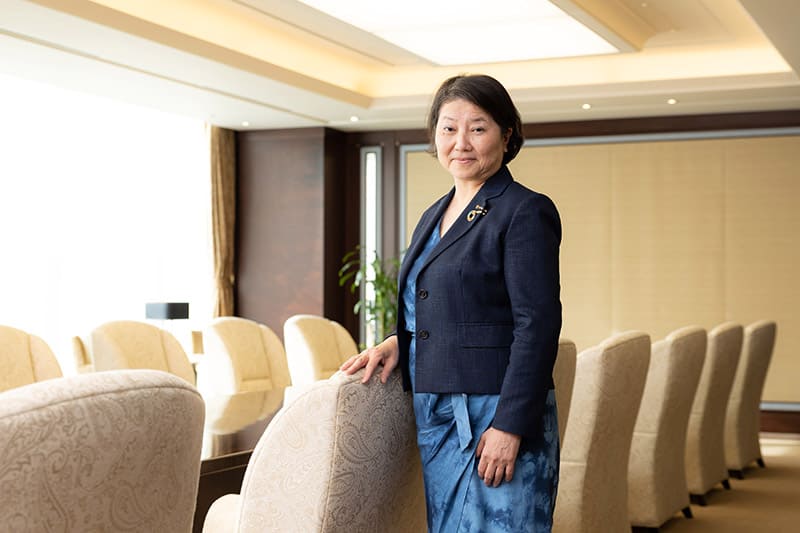October 06, 2025
For MS&AD Insurance, sustainability is existential issue
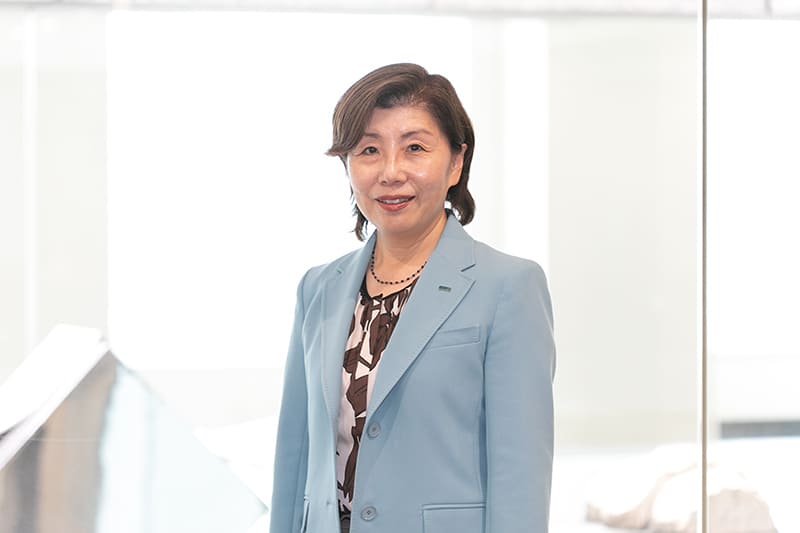
For non-life insurance companies, sustainability is a pressing issue to address rather than merely a topic promoted to appeal to stakeholders, especially as the industry faces growing uncertainty from demographic shifts and climate change.
“We have a sense of crisis that we may not be able to maintain our insurance services anymore,” said Naomi Motojima, managing executive officer and chief sustainability officer for MS&AD Insurance Group Holdings Inc., in a recent interview, part of a monthly series by Naonori Kimura, a partner for the consulting firm Industrial Growth Platform Inc.
Above all, the most significant challenge facing the non-life insurance industry is the rise in damage claims from increasing wildfires, floods and other natural disasters affected by global warming. A total of four leading non-life insurers’ fire insurance covering such events, one of their major products, has been in the red for more than a decade.
“To us, making the insurance business sustainable and continuing to provide fire insurance is almost equal to solving societal issues,” Motojima said.
The sense of crisis does not only stem from climate and demographic challenges but also a barrage of public criticism following multiple scandals in the industry over the past few years, including improper premiums and claims.
In December 2023, Japan’s Financial Services Agency ordered the country’s four major non-life insurers — including two under MS&AD, Mitsui Sumitomo Insurance Co. and Aioi Nissay Dowa Insurance Co. — to correct their operations following price-fixing on joint insurance contracts with corporate and public-sector clients. Joint insurance policies are offered by groups of insurers aiming to diversify risks arising from potentially huge benefit payments to such entities, and each insurer’s share is decided through auctions.
The FSA issued further such orders in 2024, with one of them targeting fraud involving the used car dealer Bigmotor Co. The watchdog issued orders again to the four insurers last March over their practice of leaking information on customers to other companies.
As part of their reforms to correct past wrongdoing and build new business models based on fair competition, the insurance companies announced they will sell their cross-held shares with their corporate customers, a common practice among Japanese financial institutions and firms that has long been criticized by overseas investors. MS&AD said it will sell all of its mutually held shares by the end of March 2030 and conduct longer-term growth strategies, such as investments in overseas markets, next-generation systems, digital transformation and asset management.
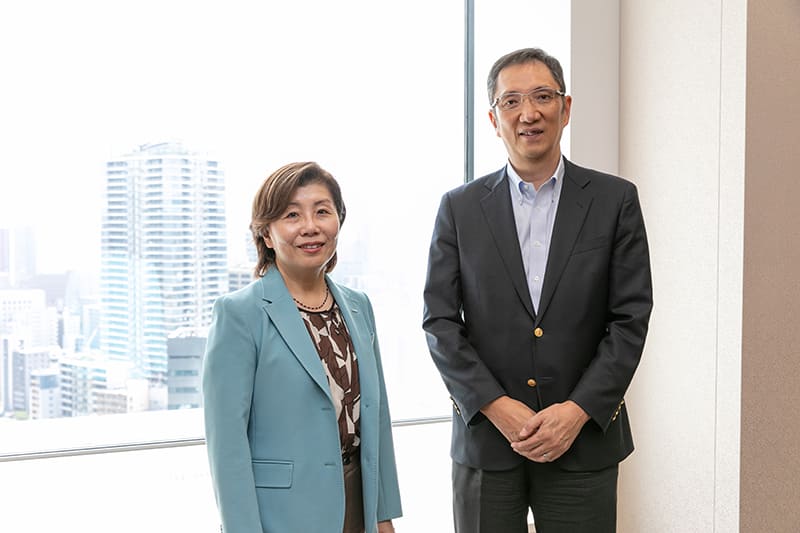
These decisions, along with other reforms and updated risk assessments for insurance policies affected by climate change, brought improvements in their financial results. MS&AD announced in May that its group net profits reached ¥691.6 billion ($4.7 million) for the business year that ended in March, up 87.3% from a year earlier and a record profit for a second consecutive year. Its fire insurance business entered the black for the first time since the integration of the MS&AD Group in 2010.
Motojima said reform plans should not be developed exclusively by corporate divisions focused on sustainability. “My primary objective is for all employees to incorporate sustainability into their roles. Otherwise, such efforts would be pointless,” she said.
Starting from the last business year, all employees are required to include sustainability considerations in making annual business plans and setting individual goals. “We must work on it based on the plan and look back on it. It is very important for all of us to continue this cycle,” she said.
The insurance group held an annual sustainability contest starting in 2018, sharing as many as 2,200 ideas proposed by group companies. This year, instead of holding the contest, the group started large-scale discussions by bringing together 150 workers representing all of its firms.
Motojima said they picked two big themes that will affect non-life insurance business from a long-term perspective: flood damage and declining population. “These are the biggest issues for our sustainability management strategies,” she said.
In collaboration with a startup company capable of analyzing river and groundwater flows, the insurance group began providing services to help companies assess and disclose their water-related risks. At the same time, it is developing tools to assess how the environmental and biodiversity impacts of companies’ activities such as urban and agricultural land development affect their financial positions.
The insurance group also discussed the possibility of cooperating with the national and local governments to create a structure for damage insurance like those for earthquake insurance and mandatory automobile liability insurance.
Motojima said the group’s sustainability management focuses on three key issues. The most fundamental one is “planetary health,” meaning “symbiosis with the global environment.” This supports “resilience,” meaning “a safe and secure society,” as well as “well-being,” meaning “the happiness of diverse people.”
For instance, to improve planetary health, one of MS&AD’s interim goals by 2030 is to reduce its own greenhouse gas emissions to 50% and those of its 3,300 major domestic corporate clients to 37% compared with the business year that ended in March 2020.
For example, salespeople talk with client companies about any possible bottlenecks to reducing their emissions so the group can understand what it can do to support clients’ efforts.
The group also is working on digital transformation to improve workers’ disaster analysis skills. Some procedures, including damage claims and assessments, are already processed through digital tools. To further improve efficiency, MS&AD decided to merge Mitsui Sumitomo Insurance and Aioi Nissay Dowa Insurance by the end of April 2027, forming the country’s largest non-life insurer.
As part of its broader reforms, the group conducted a review of its personnel system. It now sets restrictions on overtime work and encourages one-month paternity leaves for male staff.
Naonori Kimura
Industrial Growth Platform Inc. (IGPI) Partner
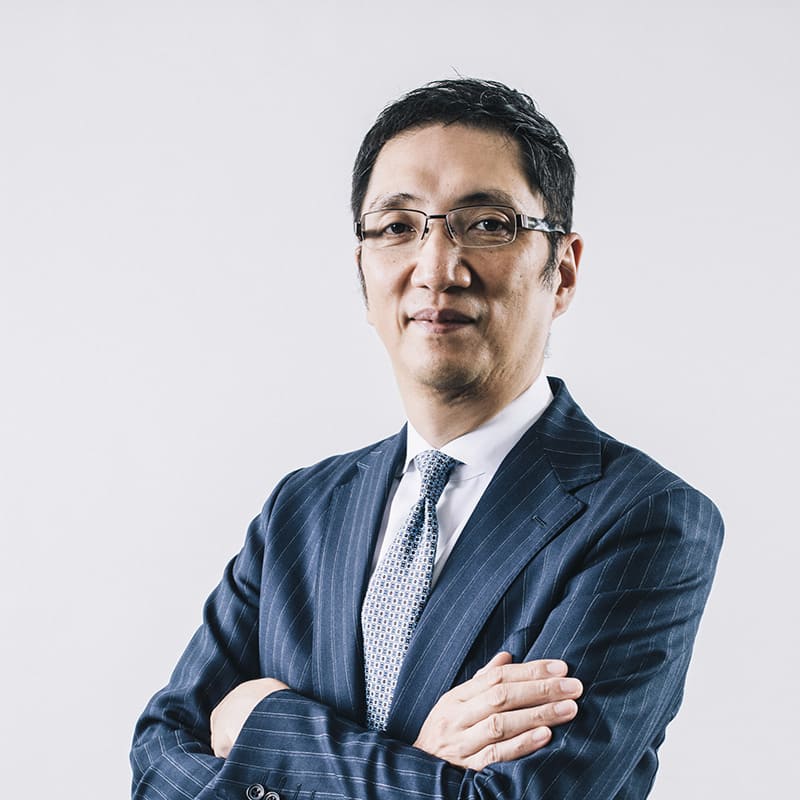
Since 2018, MS&AD has positioned creating shared value at the core of its management and shifted its strategy to treat sustainability as a business opportunity. The insurance group has consistently believed that sustainability initiatives with economic rationality, directly linking the resolution of social issues to earning power, lead to results. Having moved beyond the stage of instilling a culture where employees view issues as their own, the group is now creating problem-solving businesses, demonstrating its advanced approach by tackling the most important issues of flood risk and demographics.
Furthermore, personnel reforms such as the revision of a nationwide transfer system, the promotion of leaving work on time and the encouragement of child care leave for male employees, as well as the proactive use of digital transformation and artificial intelligence, are consistent with its strategic philosophy that “the source of business lies in the human interface.” Additionally, the policy to abolish cross-shareholdings is not only aimed at strengthening governance but is also closely linked to the transformation to a business model that competes by providing value to customers.
More than mere social contributions, these efforts are directly connected to increasing revenue and competitiveness in an era of uncertainty. Few companies can as yet highly integrate sustainability and strategy, and we hope MS&AD will lead sustainability management across Japan.

